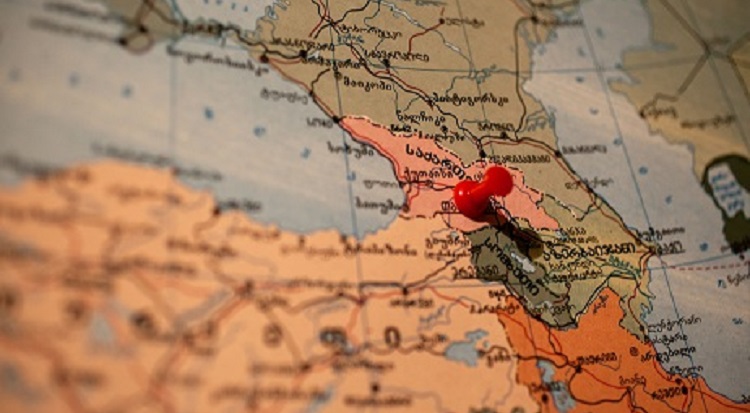World Bank official: Georgia, other countries have made “considerable progress” in moving Middle Corridor forward

The World Bank report said the Corridor could also provide resilience and route diversification for the China-Europe container trade, “shielding countries and supply chains from geopolitical shocks”. Photo: Nino Alavidze/Agenda.ge
Antonella Bassani, the World Bank’s Vice President for Europe and Central Asia, on Monday highlighted the “considerable progress” made by Georgia and other countries in the development of the Middle Corridor - a multimodal transport corridor connecting China to Europe through the South Caucasus.
Bassani’s comment came after the World Bank released a report estimating the Corridor could triple trade volume while halving travel time by 2030.
Azerbaijan, Georgia, and Kazakhstan, together with other countries, have made considerable progress in aligning their vision and moving this corridor forward. The World Bank is committed to supporting the Middle Corridor in partnership with the governments along the route and other multilateral organisations”, Bassani said.
The report also noted the outcome for the route, which has been receiving elevated interest following Russia’s invasion of Ukraine, was achievable with “right investments and policies”.
The Corridor links China and Kazakhstan by rail through Dostyk or Khorgos and Altynkol, crosses Kazakhstan by rail to the Aktau Port, proceeds to the Caspian Sea port of Baku and Alyat, before proceeding through Azerbaijan and Georgia by rail to then continue to Europe through Turkey or crossing the Black Sea.
The World Bank report said the Corridor could also provide resilience and route diversification for the China-Europe container trade, “shielding countries and supply chains from geopolitical shocks”.
The report also said increased trade between Azerbaijan, Georgia, Kazakhstan and Europe was a “key driver” of demand for the Corridor, citing a 37 percent increase in intra-region trade and a 28 percent increase in trade between the countries and the European Union.
Now is an opportune moment to make the Middle Corridor more competitive, expand its capacity, address inefficiencies, and reduce costs”, Charles Cormier, the World Bank’s Regional Infrastructure Director for Europe and Central Asia, said.
The report identifies key policies and investments needed to respond to the demand for transport and to support economic development in Kazakhstan, Azerbaijan and Georgia, including corridor-length logistics solutions to ensure “seamless” operations along the route.
It also recommends reforming and simplifying border crossing procedures, improving performance at the Caspian and Black Sea crossings and agreeing a uniform investment prioritising system.
 Tweet
Tweet  Share
Share